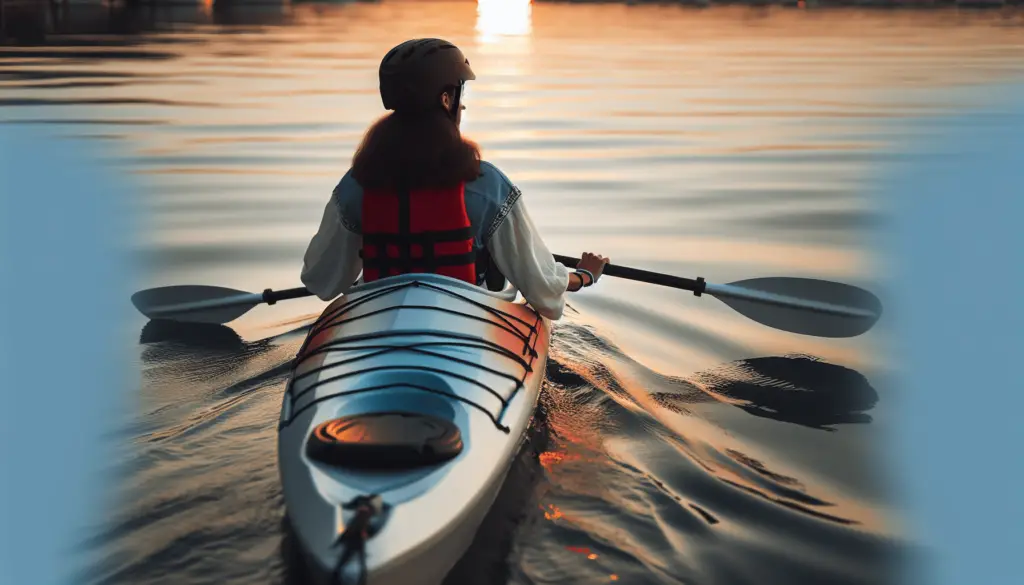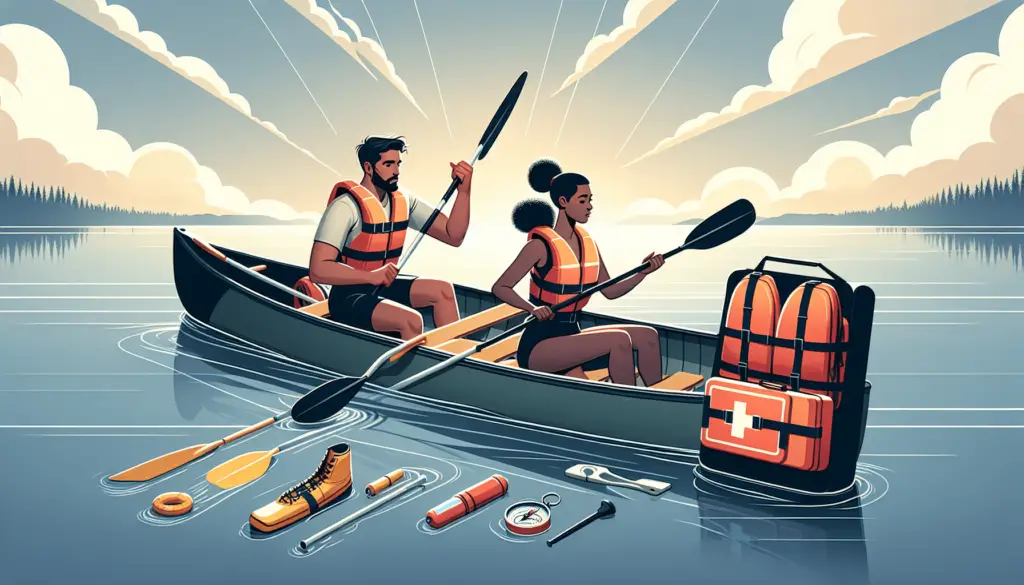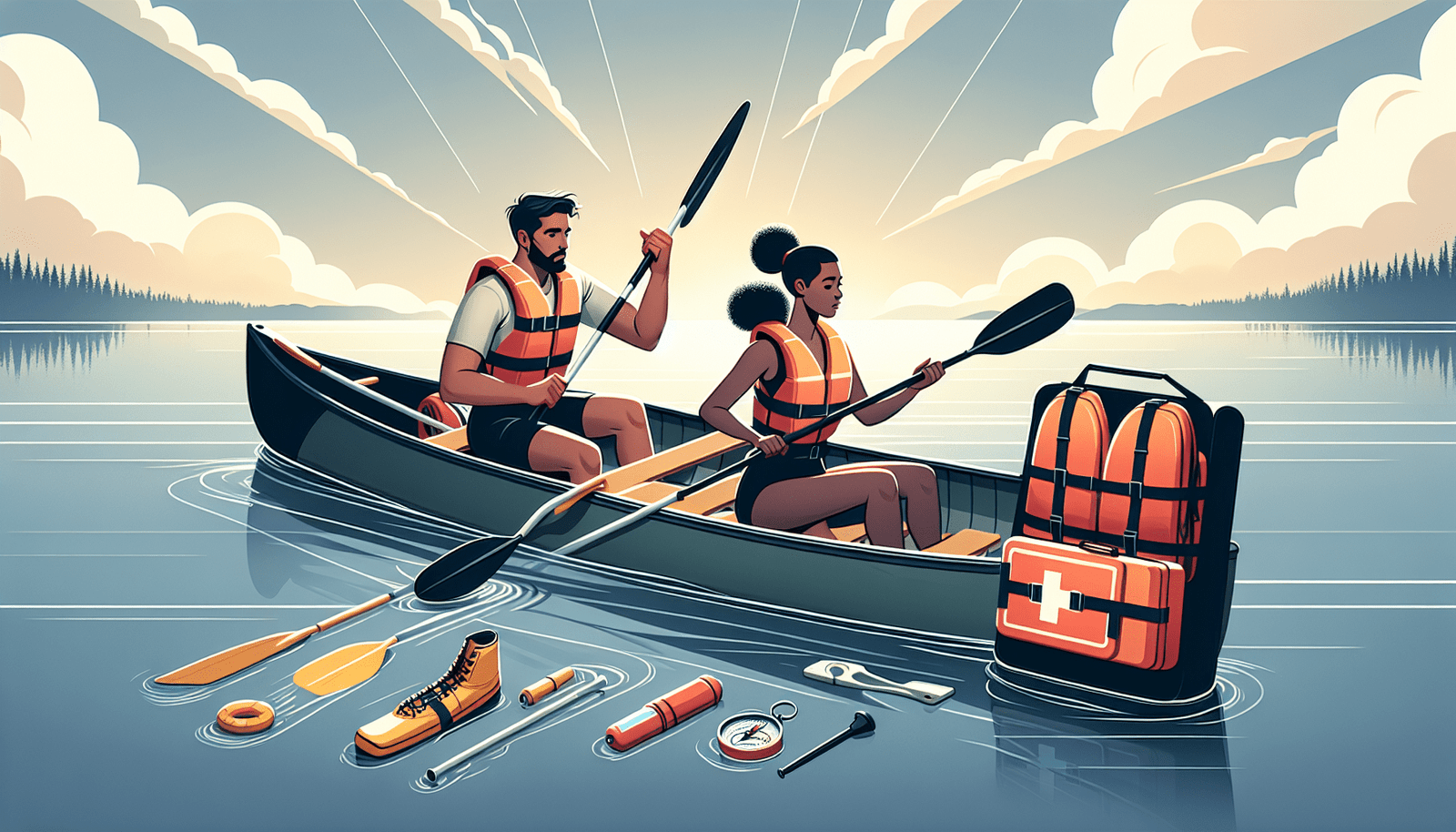Embark on a thrilling adventure as you explore the exquisite beauty of waterways in your kayak or canoe. Armed with the knowledge from “Boating Safety Tips For Kayakers And Canoers,” you can confidently conquer the calm and wild waters alike. This invaluable guide overflows with wisdom, providing essential safety tips tailored for you, the intrepid kayak or canoe enthusiast. Whether you’re a seasoned veteran or a budding beginner, the secrets to a safe and enjoyable experience on the water are all waiting for you to uncover.
Understanding the Basics
As you delve into the world of kayaking and canoeing, a holistic understanding of the basics is undoubtedly of paramount significance.
Know your craft
In order to master the skill, you need to first acknowledge your craft. The shape, size, and functionality of your kayak or canoe play a critical role in how it interacts with water. Remember that each craft is unique in its way and designed for specific water conditions.
Study your paddling environment
Do not underestimate the power of the environment you choose to paddle in. The waters can be unpredictable, but knowing the general behavior can keep you prepared. Whether you’re paddling in a serene lake, a swift river, or a capricious sea, each environment calls for its own set of skills and cautionary steps.
Familiarize yourself with the local boating laws and regulations
Although the sheer joy of boating can be captivating, don’t forget to familiarize yourself with local laws and regulations. These are put in place for your safety and to ensure an enjoyable boating experience for all.
Preparation Before Heading Out
Being well-prepared is always better than being caught off guard.
Check the weather forecast
Before you embark on your exciting excursion, always check the weather forecast. Water bodies can become extremely hazardous during inclement weather.
Inform someone about your plans
No one anticipates emergencies, but it’s best to be prepared for them. Always inform someone about your boating plans – your location, route, and expected return.
Pack necessary equipment
Pack all essential equipment – paddles, life jackets, first-aid kits, etc. These are your lifelines, in case things don’t go according to plan.
Rehearse re-entry procedures
As part of your preparation, rehearse re-entry procedures in case you capsize. This ensures that, even under pressure, you are ready to react.

Keeping a Safe Distance
In the water, maintaining a safe distance is key.
Be aware of larger vessels
Larger vessels may not always be able to see kayaks and canoes, so it’s your responsibility to stay clear.
Maintain a wide berth from other watercraft
Just like on the road, boating requires a certain etiquette. Maintain a respectful distance from other watercraft.
Avoid congested areas
It might be tempting to join a large group of boaters but try to avoid congested waters. The risk of collision is higher in such circumstances.
Wearing Appropriate Gear
The right gear can often make the difference between an exhilarating experience and a disastrous one.
Always wear a life jacket
A life jacket is non-negotiable. It’s your first line of defense in an emergency, so ensure you wear one at all times.
Dress appropriately for the weather conditions
Your clothing should be conducive to the weather conditions. Wear layers when it’s cold, light clothing when it’s hot, and always have rain gear handy.
Wear clothing that enhances visibility
Brightly colored clothing can enhance your visibility, making it easier for other boaters and rescuers to spot you in the water.
Protect your skin from the sun
A day out in the sun can harm your skin, so don’t forget to protect it with sunscreen and a hat.

Maintaining Your Equipment
Routine equipment maintenance ensures a longer life for your gear and a safer ride for you.
Regularly inspect your equipment
Regular inspections allow you to spot wear and tear early and ensure that your equipment is in top-notch condition before every outing.
Ensure buoyancy aids are in good condition
Your buoyancy aids should be able to perform when needed. Regularly inspect them and replace if necessary.
Repair or replace worn-out or broken equipment
Never ignore damage. If any part of your gear is worn-out or broken, either repair it or get it replaced.
Navigating the Waters
The ability to proficiently navigate is a valuable skill on the water.
Know how to use a compass or GPS
Knowing how to use navigation tools, such as a compass or GPS, is critical to keep you on course.
Recognize landmarks
Landmarks offer a natural guidance system. Keep them in mind during your voyage.
Learn to identify dangers
Dangers like currents, rocks, or whirlpools are not always noticeable. Skilled boaters learn to identify these dangers.
Complying With Local Regulations
To enjoy the waters while also honoring the rights and safety of others, compliance with rules and regulations is a must.
Understand right of way rules
Knowing who has the right of way prevents collisions and keeps the water safe for all users.
Know noise and speed regulations
Every area will have specific noise and speed limits. Familiarize yourself with these and try to adhere to them.
Respect restricted areas
Restricted areas are designated for specific reasons. To ensure your safety and respect the ecosystem, avoid these spaces.
Dealing with Emergencies
Unexpected things happen, but being prepared to handle an emergency can avert or minimize disaster.
Learn basic first aid
First aid knowledge is a vital skill when on the water, where medical help may take time to arrive.
Know how to call for help
Knowing how to signal for help, whether by flares, a whistle, or a radio, can save lives.
Carry necessary emergency equipment
Always have emergency gear at hand— this includes flotation devices, first aid kits, and distress signals.
Practicing Responsible Boating
Your responsibility as a boater extends beyond your personal safety.
Respect wildlife
When you’re out on the water, remember that you’re a guest in the home of countless wildlife. Observe them from a distance and respect their habitats.
Don’t pollute the water
The waters are an invaluable resource. Do not discard any garbage into the water. Maintain its purity.
Avoid disturbing other water users
Be mindful of other water users and ensure that your actions do not impede or disturb their activities.
Taking Care of Your Health
Your well-being holds the key to a pleasant boating experience.
Stay hydrated
Dehydration can lead to dull reflexes and confusion. Drink enough water before and during your trip.
Protect against hypothermia
If you’re boating in colder weather, make sure to wear clothing that will keep you warm.
Be aware of signs of fatigue or stress
Boating requires physical strength and mental alertness. If you feel fatigue setting in, don’t push your body, instead return to shore and rest. By following these guidelines, you can ensure that boating remains a joyous experience for you and those around you. Remember, safety always comes first.

